Finding Poetry and Hope with the YA Characters
in Times of Emotional Distress
Leilya Pitre, Southeastern Louisiana University
| Leilya A. Pitre is an assistant professor of English Education at Southeastern Louisiana University, where she teaches Young Adult Literature, literary analysis, and content methods courses for pre-service secondary English teachers. Prior to her teacher educator experience, she taught English as a foreign language in Ukraine and ELA/English in public schools in the US. Her research interests include teacher preparation, clinical experiences, secondary school teaching, and teaching and research of Young Adult and multicultural literature. Together with her friend and colleague, Mike Cook, she co-authored a two-volume edition of Teaching Universal Themes Through Young Adult Novels: Exploring Identity Development and Self (2021) and Exploring Relationships and Connections to others (2021). |
Reading YA novels, we often witness experiences of adolescents filled with emotional distress, pain, challenges, and loss. So every time reading and discussing the characters, whether it is Melinda from Speak (Anderson, 1999), Franky (Oates, 2003), Rashad and Quinn (Reynolds& Kiely, 2015), Kyle and Hannah (Polisner, 2016), and other young protagonists, we look for hope.
Usually, prior to class discussion of a YA novel, my students are tasked with writing a one-page response analyzing the novel through one of theoretical lenses: reader response, gender, post-colonial, social class/Marxism, biographical, or psychological lens. I have to say that students’ responses this semester are beyond my expectations. They are thoughtful, critical, and make note of some slight details that make understanding and interpretation more meaningful.
When in class, they do not even need me to facilitate the discussion. It is conducted as a Book Club meeting every educator or teacher dreams to have; every time I have to stop them in the middle of the discussion reminding that the class time is over. “We just need one more hour,” – one of them usually utters.
| The novel we recently read is I Have Lost My Way by Gayle Forman (2018). Gayle Forman presents an emotionally charged story of three strangers—Freya, Harun, and Nathaniel—whose lives become closely connected by a fateful accident. “I have lost my way,” sounds like a broken record in each of their heads at first, but in the end, they realize that by helping each other, they are able to overcome their own tragedies and find themselves again. Since April is a National Poetry Month, I complicated students’ weekly response asking them to create a poem in response to the novel. Poetry allows us to formulate our thoughts, feelings, and insights without the burden of verboseness, as well as express personal attitude reflecting on the readings. It is also a creative way that gives students a break from formal academic writing. |
The first poem is written by Brooke J., in which she reveals struggles Freya experiences until she meets Harun and Nathaniel in Manhattan, NY. note that Brooke's poem is written in haiku.
| The Order of Loss You first lose something When the promise of a dress Starts to fade to black. All you have left are A mother, a sister, and A sad song to sing. Two voices are one Until they are forced apart You are left alone. The last thing you lose Is the song you kept singing. What choice is there now? You can only fall And find a soft place to land Right into the hands Of two who know loss. You need their hands to hold on To know you are found. | Responding to Brooke’s poem, Kaleigh C., her classmate, writes: “Your poem represents Freya and each of her struggles so well. It sums up Freya's story in a beautiful way. I love the lines, "when the promise of a dress/starts to fade to black" because it's a subtle yet powerful way to discuss the allure of becoming famous and then losing it all in an instance. I feel like the first four stanzas are very relatable to the downsides of fame in general and how people lose so much on their way to becoming famous.” Both, Kaleigh and Brooke understand pain and loss experienced by the protagonist, at the same time acknowledging that there is hope after Freya fall “into the hands// Of two who know loss” because together they find empathy and support each other. |
| I Have Lost My Way This city is disorienting. Buildings here are taller than the trees. Sound loudly hums to life around me, My senses are jumbled. But I have a mission, a Plan B. I am searching for that place because I have lost my home. You And your promises that once rang true in my ears. “A fellowship of two,” you said. An oath shared between us… Friend or father? You couldn’t be both. With your role undetermined, who was I? In spite, you left me no answer, and now I have lost myself. Except, they won’t let me. These strangers pull me away from the dark depths I have stared into my whole life. I say “It’s all good,” trying to release them Yet here these two stay. My burdens, theirs. Our burdens, shared. They see me, love me, despite these flaws. We share our truths, our pain. We all have lost, Yet in their company, I am found. Now: talks of later, a Plan C. Sweeter than any song to me. | Robert A., responding to Sadie, notes how skillfully she embedded into this poem the experiences that often are too familiar to adolescents, not just to Nathaniel about whom this poem initially is. This poem clearly shows that Nathaniel, too, finds his way because his new friends “see me, love me, despite these flaws.” Finally, the Plan B is not needed any longer because the possibility of the future exists. |
One more poem in response to this novel, to represent the third protagonist, Harun, and his struggles as a young gay man is written by Grace L.:
| *** If I could fly, I would soar through the sky, Take a bite out of a cotton candy cloud. Oh, you would be so proud, “My son can fly!” They would scream, It would boost my self-esteem, Being up there like Continental Airline flight Seventeen. But instead, I stay grounded. Feet planted firmly on the ground. People can’t get the wrong idea If they did, they would judge me, Us. Can’t be too fat. Can’t be too interested. What they should have said, Is Can’t be too gay. Look at Jasmine, not Aladdin. Stay focused, not on Aladdin. Think of princess Not princes. Be the straight, focused, be The perfect son you know they want you to be. | In her poem, Grace focuses on gender lens, which is not so easy to do in a poetic form, let’s agree. Skyler C. admires Grace’s talent commenting, “I was struggling to understand how a person might focus on a lens using poetry, but this [your poem] made perfect sense! I love the Aladdin reference.” All that Harun’s conservative parents ever wanted for their son to be “a normal man,” who would “Look at Jasmine, not Aladdin./ Stay focused, not on Aladdin. / Think of princess/ Not princes.” The way Harun makes a decision to be true to himself gives readers hope that he is going to be okay. |
Following the homework and class discussion of the novel and poems, I teach my students how to write a sevenling and golden shovel poems. A Sevenling is a poem of seven lines, which contains:
- two lists of three items
- one-liner that resolves (or plays up) the difference between your lists.
A Golden Shovel is a poem written by using the lines from the favorite poems. This is how it is created:
- Take a line (or lines) from a poem you admire.
- Use each word in the line (or lines) as an end word in your poem.
- Keep the end words in order.
- Give credit to the poet who originally wrote the line (or lines)--you can do this in your title.
- The new poem does not have to be about the same subject as the poem that offers the end words.
Below are a few poems created in class.
| To continue with I Have Lost My Way (Forman 2018), let’s begin with Devin’s sevenling devoted to the characters in with a hopeful concluding line: *** A voice that is lost, A family at odds, The joy in my heart is only façade. Eyes that are blinded, A fellowship broken, A heart with no hope for success. Together they write a story yet to be spoken. | The following sevenling is about Hannah, one of the two protagonists, in The Memory of Things (Polisner, 2016). It is written by Maggie T.: Hannah Broken wings that couldn’t fly Covered in bloody ashes Abandoned by a mother Holding on to a dear life Memory games and palm readings A dancer takes the stage Things aren’t always what they seem. |
Speak
I am a willow tree.
Drooping, sad willow tree.
Hiding behind my branches.
I was a sapling,
With dreams of being an oak -
Strong and sturdy.
My branches are lifting; I am free.
In the following poem, Kelsey J. chose two lines from the first stanza of Dickinson’s poem, “And sings the tune without the words—//And never stops—at all—” replacing the first word “And’ with “hope.” Her poem focuses on Kyle’s loss in The Memory of Things:
***
I cannot dare to hope
when all the world sings
a wailing cry of mourning at the
towers gone down. Life feels out of the tune
now. How do we carry on without
the pressing guilt of disregarding the
fallen and the unpredictable future. Words
cannot help, but we try. And
the only thing that is left is hope in the never
ending world. The future never stops
She keeps my heart beating wherever she’s at
Maybe I can have hope after all.
The bold-type words at the end of each line are from Dickinson’s poem. Kelsey describes Kyle’s feelings, and refers to Hannah as the one giving him hope for tomorrow.
| Here is Kaleigh’s golden shovel also devoted to the same novel, for which she took a line from E. Dickinson: “I wonder if it hurts to live:” *** Grief aches my soul, and I Only have the memories of you to wonder I wonder if Mom will get out of bed today and face it With me, a child, who feels the hurts Who measures every grief to Carry this burden, so my mom can choose to live. | To compose his poem, KeRon J. chose the following line from the novel I Have Lost My Way, which became the title of the poem: It Was Just Us. The love you gave I never felt IT. Never present or inevitable, just WAS. Fidelity and treasures not true or JUST. We never became one because you loved yourself—not US. This poem reflects Nathaniel’s confusing relationship with his father. The young man realizes that his father’s idea about “a fellowship of two” was ephemeral and only feeding his father’s ego. |
***
Clashing with the current, they
Destroy the path they see
Before them. They have found him
Here, on this bridge of broken bones. He
Can’t believe he has been found. He hears
The music of her voice and feels them
Pulling him down to earth. This was how they
Met, but now it’s his turn to take the fall. They find
Him trapped and pull him down. Each
One of them holding onto the other.
Leilya
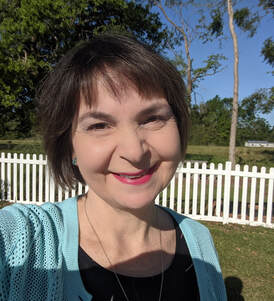
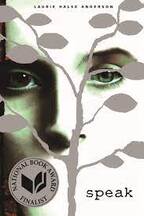
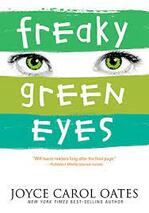
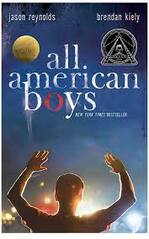
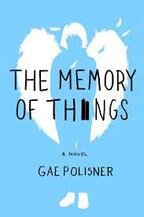
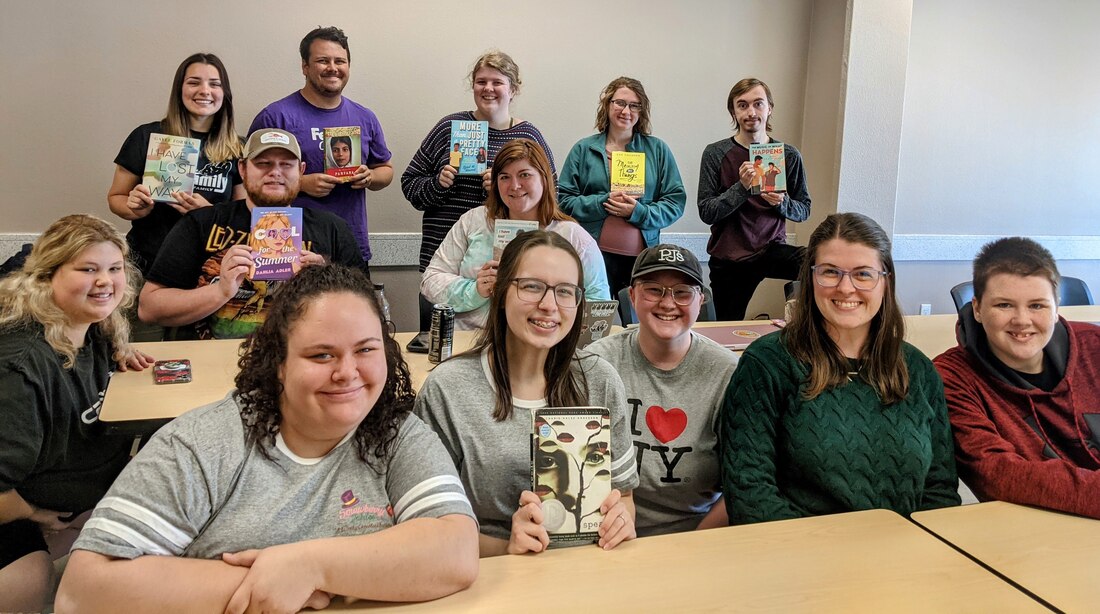
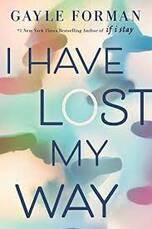

 RSS Feed
RSS Feed